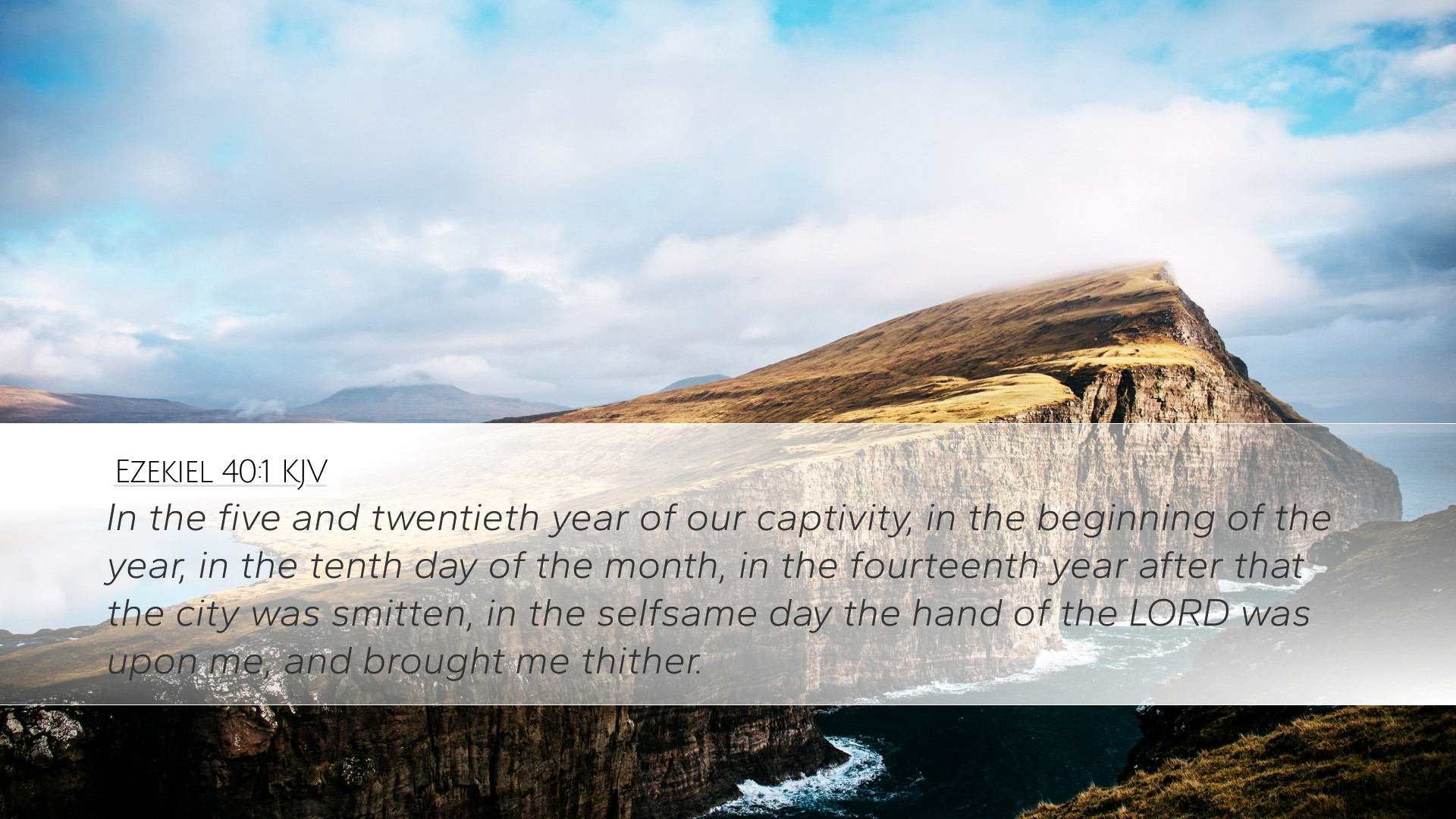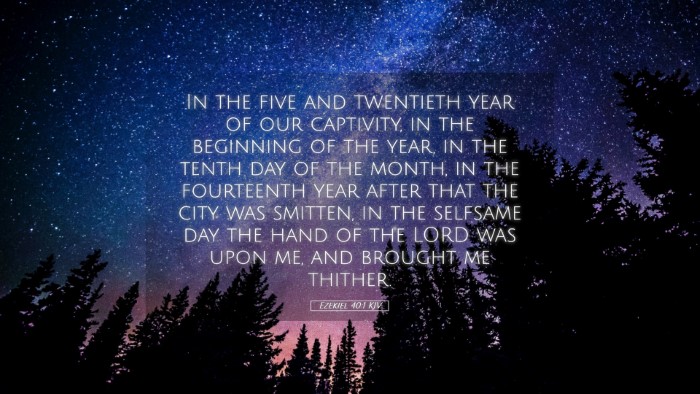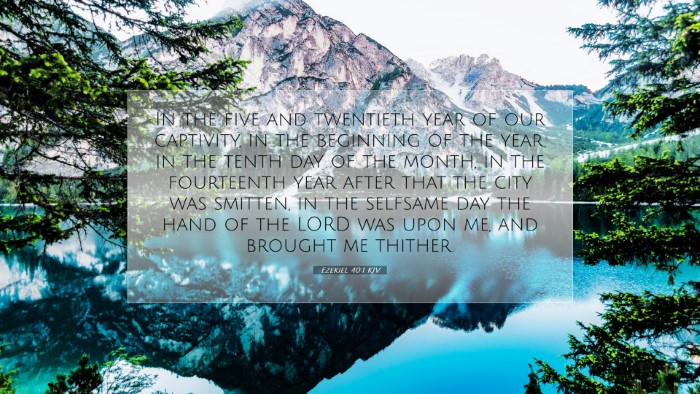Ezekiel 40:1 Commentary
In Ezekiel 40:1, we find the prophet Ezekiel recounting a significant vision that marks a pivotal moment in his prophetic ministry. The verse states:
"In the twenty-fifth year of our captivity, in the beginning of the year, in the tenth day of the month, in the fourteenth year after that the city was smitten, in the selfsame day the hand of the LORD was upon me, and brought me thither."
Contextual Background
This passage occurs in a section of Ezekiel that shifts from the prophecies of judgment to a vision of restoration and hope for Israel. The timing reflects both a historical moment of captivity and divine revelation.
Historical Significance
Matthew Henry emphasizes the significance of the date given by Ezekiel, highlighting that this precise timing serves to remind Israel of God's sovereignty amidst their suffering. The reference to captivity denotes the intensity of their situation, while also announcing the arrival of God's promises for renewal.
Divine Initiative
Albert Barnes notes the phrase "the hand of the LORD" as an indication of divine empowerment. This suggests that the vision Ezekiel experiences is not of his own contriving but a direct act of God, intending to reveal important truths about the future of His people. The emphasis on God’s direct involvement is a comfort to believers who may feel abandoned in their trials.
Interpretation of the Vision
The subsequent chapters following this verse contain detailed descriptions of a new temple and worship practices, symbolizing a renewed covenant relationship between God and His people after their exile. This vision is deeply symbolic and serves to instruct the community regarding God's ultimate plans for restoration.
Mystical Revelation
Adam Clarke observes that the vision Ezekiel receives can be seen as mystical in nature. He outlines that the detailed architecture of the temple and the ceremonial practices symbolize not just a physical space but a spiritual renewal and transformation among the people of Israel. This underlines the importance of worship and the presence of God in their community life.
Theological Implications
Analyzing this verse with theological lenses, we see several key themes emerge:
- The Sovereignty of God: The accurate timing underscores that God is in control of history.
- The Hope of Restoration: Despite their current suffering, this vision serves as a beacon of hope for Israel’s future.
- The Importance of Worship: The focus on a new temple highlights God’s desire to dwell among His people and the significance of corporate worship.
Application for Today
For today’s pastors, theologians, and students, the implications of Ezekiel's vision encourage a reflection on God’s faithfulness amidst seemingly hopeless circumstances. It invites believers to seek God’s presence through worship and community, echoing the call to be a dwelling place for God.
Conclusion
Ezekiel 40:1, when viewed through the lens of these commentaries, reveals not just historical and prophetic significance, but also rich theological insights. It highlights the transformative power of God’s presence and serves as a reminder of the hope that is found in restoration and worship.
The enduring message of Ezekiel’s vision continues to resonate: that even in our most desolate experiences, God is orchestrating a plan for renewal and redemption.


